Entertainment Today
Atlas Shrugged all too feasible
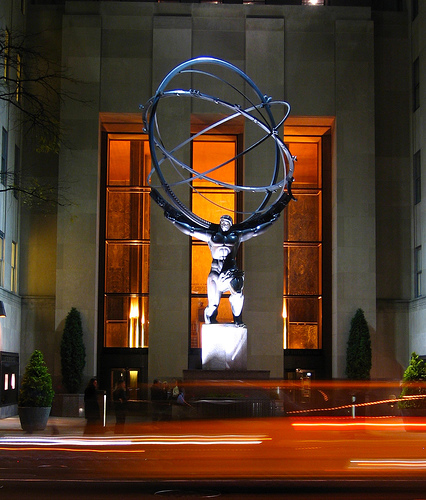
Many critics panned Atlas Shrugged, Part One as portraying things that could never happen in America. News flash: they can, and are.
The original Atlas Shrugged era
True enough, Ayn Rand wrote Atlas Shrugged, the novel, in a different era. Commercial aviation was still new, new enough for mid-air disaster to be a common movie theme. (Think Zero Hour, The High and the Mighty, No Highway in the Sky, Phone Call from a Stranger, etc.) The Interstate and Defense Highway System was still a new initiative. And so railroads were the primary mode of transport for passengers and freight. Furthermore, the railroads were in private ownership. They carried most passengers on long-haul trips, and also carried fast fright. This included express packages (Railroad Express Agency).
Ayn Rand did get a few things wrong: the names, and the precise nature, of the institutions of government. She did not use, perhaps because she did not know, terms like “President,” “Congress,” or “Governor.” She might, or might not, have understood that the national legislature is a bicameral legislature, or that each chamber has its own rules.
But she began writing Atlas Shrugged in the last years of the Harry S. Truman administration. The policies of men like Mr. Thompson, Wesley Mouch, Eugene Lawson, Tinky Holloway, and Clarence “Chick” Morrison were the logical projections of where the New Deal might lead. That this did not happen is only because Dwight D. Eisenhower beat Adlai E Stevenson in the Election of 1952. Mr. Stevenson might, or might not, have been “Mr. Thompson.” And no one could have predicted that any President, much less a Republican, would freeze wages and prices in private markets.
Later developments
Fifteen years after Atlas Shrugged appeared, the private railroads stopped carrying passengers; hence the National Rail Passenger Corporation (Railpax, now Amtrak). (The logo of the “John Galt Line” looks like a version of the Amtrak logo.) The airlines took the passenger business away from railroads, and later took much of the fast freight away. The railroads now mostly move slow and bulk freight, but long-haul trucks move much of that. So a Taggart Transcontinental could still exist. Its real name might be CSX, or Norfolk Southern, or the Union Pacific. It would move everything but passengers and express freight, and could go back to carrying passengers at any time. (More on that later.)
[ezadsense midpost]
And to repeat: many of the outrageous public policies that Ayn Rand described in Atlas Shrugged have actually come into effect. President Richard M. Nixon froze wages and prices (in private markets!) for ninety days, and later for sixty. He set up a Pay Board and a Price Commission. All three, or at least their functions, are cardinal features of Directive 10-289. Viewers will see Wesley Mouch announce that in Atlas Shrugged, Part Two.
Nor has the judiciary refrained from these disturbing trends. True enough, no court has ever tried a case like Hunsacker v. Mulligan. (The movie Atlas Shrugged, Part One did not even mention it.) In that case, a would-be business borrower sued a banker who refused him a loan. The kicker: courts, and regulators, have sanctioned banks for refusing to make residential loans to un-credit-worthy borrowers. The result is the financial crisis we see today. So perhaps John Galt’s appeal in the movie was simply that Midas Mulligan could get away from the steady stream of vilification and interference that today makes banking singularly unrewarding.
The America of Atlas Shrugged, Part One
So America is already well on the way to the dystopia that the new Atlas Shrugged movie depicts. The other changes that must take place, are the endpoints of current trends. The opening montage does a good job of explaining those changes, to any viewer (or critic) willing to pay attention:
- The Middle East “implodes.” All international traffic in oil stops. So, no oil for the United States from outside the United States. (The Canadians have problems of their own. And in Ayn Rand’s vision, everyone else’s problems are worse.) That is why gasoline sells for thirty-seven-and-a-half dollars per gallon. CNAV remembers when gasoline once sold for thirty-seven-and-nine-tenths cents per gallon, even for high-test grades.
- Commercial aviation dies. The montage has one scene showing a junk crusher demolishing an airliner, either a Boeing 727 or an MD-80. So the railroads go back to carrying passengers. The technology already exists, including the double-decker passenger cars that New Jersey Transit’s rail division and other commuter railroads run today. (That Taggart Transcontinental might take passenger service back from the government might seem incongruous. But that might be one of the first “Washington favors” that James Taggart gets from his government friends.) Note also Dagny Taggart’s ironic line to Henry Rearden: “Commercial air service? You are really trying to put me out of business.” Both people know that the re-establishment of commercial aviation would be quite a feat, even with a new metal that can beat all the advanced composites in use today.
- Giant superhighway ramps collapse and stay collapsed. Many critics today warn that such things will start to happen if Congress fails to pass some highway bill or another.
- The Constitution is unrecognizable. Perhaps Mr. Thompson, whose real name is Barack Hussein Obama, calls a runaway Constitutional Convention. Among other things, this convention replaces Congress with a unicameral Legislature that favors “Blue States” over “Red States” in legislative apportionment, and may delegate its authority to tax and legislate to regulatory agencies. Hence the Bureau of Economic Planning and Natural Resources, which actually gains the direct power to tax. Hence also a complete abrogation of all restrictions on unapportioned direct taxes.
- No election campaign takes place in 2016. That can mean only one thing: that Mr. Thompson is President for Life.
- The government has cut national defense and made the military incapable of projecting its power overseas. That might actually please at least one Republican candidate for President. The result is that the high seas revert to the utterly lawless environment they were in the days of Sir Francis Drake. And so the United States Navy cannot cope with a buccaneer (or actually a privateer) who preferentially seizes “relief cargoes” of durable goods that the United States is trying to ship overseas. Behold the new foreign aid, and even that is not safe.
Conclusion
Thus Atlas Shrugged, Part One need not have been a “period piece” to be feasible. Some part of the situation it depicts are happening now. Others could happen, and many in government want them to happen.
The only way to stop them from happening is with your vote. Atlas Productions knows this. That’s why they plan to release Atlas Shrugged, Part Two during the election campaign. Behold the Conservative October Surprise.
Featured image: a statue of Atlas.
Related:
[amazon_carousel widget_type=”ASINList” width=”500″ height=”250″ title=”” market_place=”US” shuffle_products=”True” show_border=”False” asin=”B005N4DMMG, B005N4DP1E, 0452011876, B0064J6RU8, 0451947673, 0394415760, 0451191145, 1433256185″ /]
[ezadsense leadout]
Terry A. Hurlbut has been a student of politics, philosophy, and science for more than 35 years. He is a graduate of Yale College and has served as a physician-level laboratory administrator in a 250-bed community hospital. He also is a serious student of the Bible, is conversant in its two primary original languages, and has followed the creation-science movement closely since 1993.
-
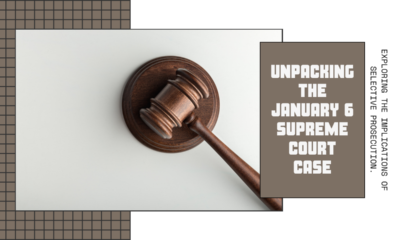
 Executive1 day ago
Executive1 day agoJanuary 6 case comes down to selective prosecution
-

 News2 days ago
News2 days agoRolling the Dice on Republicans: Has the Right Become Delusional?
-
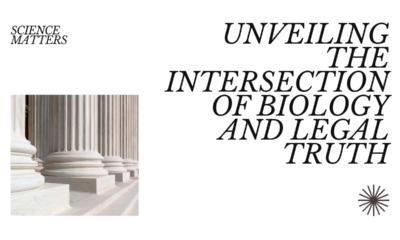
 Civilization2 days ago
Civilization2 days agoBiology, the Supreme Court, and truth
-
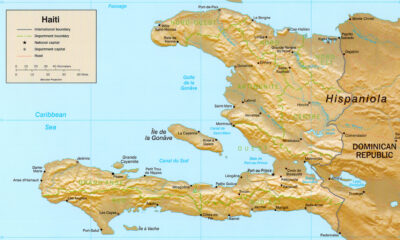
 Civilization16 hours ago
Civilization16 hours agoPresident Biden Must Not Encourage Illegal Mass Migration From Haiti
-

 Executive17 hours ago
Executive17 hours agoWhy Fatal Police Shootings Aren’t Declining: Some Uncomfortable Facts
-
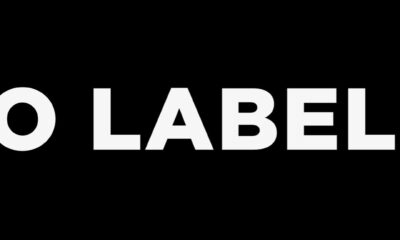
 Guest Columns16 hours ago
Guest Columns16 hours agoWhat Was Won in No Labels’ Crusade
-

 Entertainment Today18 hours ago
Entertainment Today18 hours agoWaste of the Day: Throwback Thursday: Millions Went To Video Game ‘Research’
-

 Constitution17 hours ago
Constitution17 hours agoEquality Under the Law and Conflicts of Interest in New York

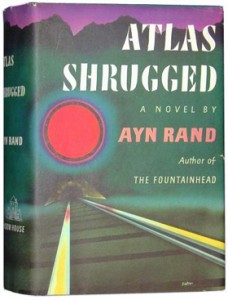
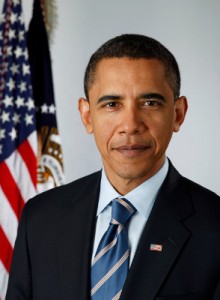


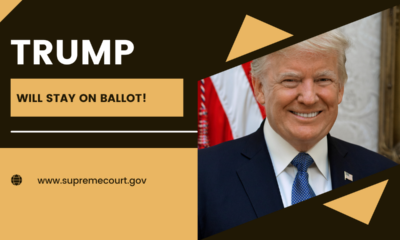

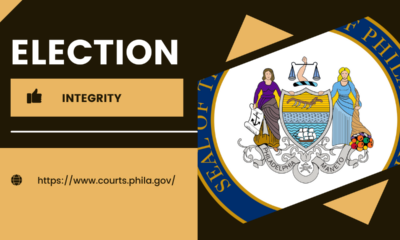



actually…just looked it up…the movie was panned because it was ultra low budget…and by all accounts kinda sucked. even critics who liked the book and message said it deserved more.
and while i havent watched the film, based on the trailer, it looked like just a bad movie.
I would urge you to watch it. Never judge a movie by its trailer. Especially not this one.
i will, if you can say that it is a legitimate good movie. not a movie with a message you like, but rather a movie with good writing, directing, acting, production values, etc. I cannot afford to waste my money watching bad films (which unfortunately means i watch very few movies that aren’t instant streaming on netflix)
As I said in an earlier article, this one will take you on a wild ride. The action barely lets up. I’ve seen few movies that can make the business of running a railroad look interesting. (Most of that kind of movie are about railroad disasters or crimes.) Put it this way: the effort involved in laying new track along a hundred-year-old line, is a metaphor for someone trying to renew the spirit of the whole country. But in the end, the heroes find out that you can’t fix stupid–or just plain power-greedy. The train wreck that the film opens with, is a metaphor for the train wreck of society.
And I admit that it leave you hanging–a little. Because the producers are coming back with more next year.
[…] Atlas Shrugged all too feasible […]